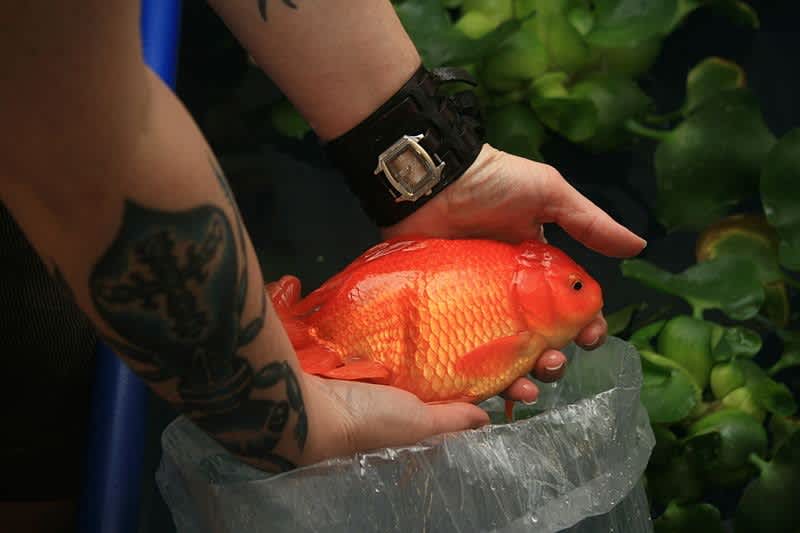How Many Goldfish Does it Take to Ruin Your Fishing Hole? Just a Few, Colorado Officials Say
OutdoorHub Reporters 04.10.15

If you are thinking about releasing your pet goldfish into public waters, think again. Not only is it illegal in many states and can cause damage to the local ecosystem, wildlife officials say that even a handful of goldfish are enough to establish an invasive population. Colorado Parks and Wildlife (CPW) recently announced that it is seeking leads on who released goldfish into Teller Lake #5. The lake now boasts more than 4,000 of the popular aquarium fish. jeopardizing native species such as bluegill and catfish. State officials said the lake was free of goldfish just two years ago, until somebody decided to release just a few into the lake.
“Goldfish are not a native species and are very harmful to the local aquatic ecosystem,” said Kristin Cannon, district wildlife manager for Boulder. “We strongly encourage the public not to dump their unwanted pet fish in our waters.”
Teller Lake #5 is not the only lake to be affected either. In 2012, the CPW killed more than 2,000 non-native goldfish in Thunderbird Lake using electro-fishing. Based on the age of the goldfish killed, it is believed that they had only been in the lake for two years. Lakes in other states, such as California’s famous Lake Tahoe, are also affected by overgrown goldfish populations.
How do goldfish breed so quickly? As a distant relative of the dreaded Asian carp, common goldfish can breed at phenomenal rates as long as they are given the right environmental conditions. These conditions, such as correct water temperature and diet, are generally not available for aquarium goldfish unless the owner is intentionally trying to breed them. Captive goldfish also have a habit of eating their own eggs and young. In the wild, however, invasive goldfish populations can become established almost overnight.
“Dumping your pets into a lake could bring diseases to native animals and plants as well as out-compete them for resources,” CPW spokesperson Jennifer Churchill told ABC News. “Everything can be affected. Non-native species can potentially wipe out the fishery as we’ve put it together.”
The impact of goldfish on the lake is already being felt by local anglers, who say they catch two or more goldfish for every crappie or bluegill they reel in.
“I was totally shocked at how many goldfish there was,” Bob Sharp, who frequents Teller Lake #5 with his grandsons, told CBS News.
Wildlife officials are now considering either draining the lake or catching the fish through electro fishing. Captured goldfish will be sent to a local raptor rehabilitation facility, where they will be kept to feed birds. Officials also advise residents not to take goldfish home to keep as pets.
You can see an interview with local anglers below:

